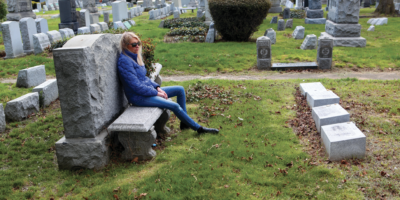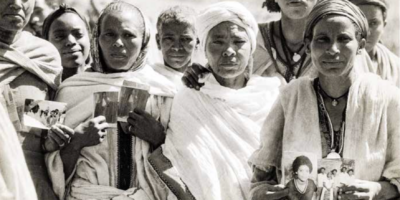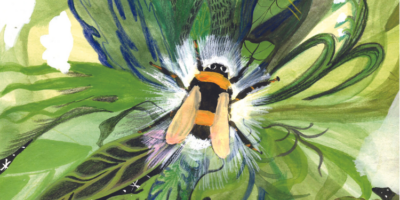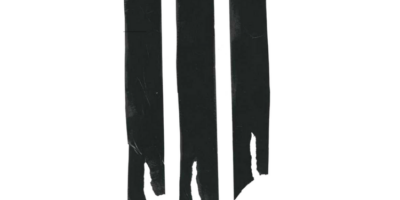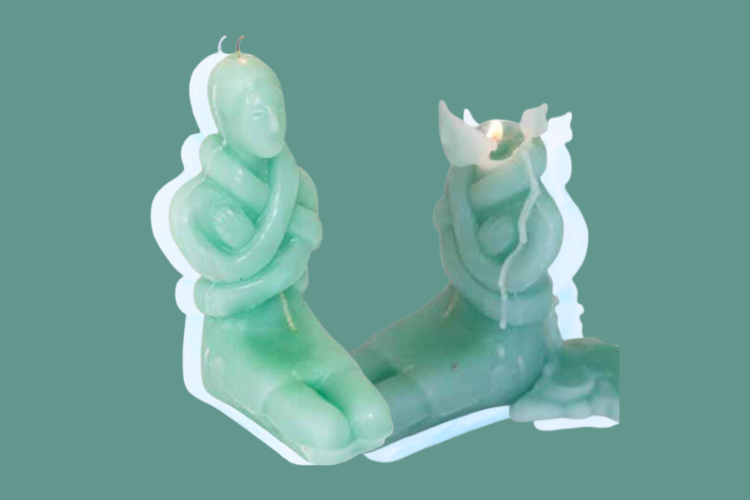
Art: Rachel Levit Ruiz
“I don’t want you to be afraid of me.”
“I don’t want you to be afraid of me,” he said, tone unreadable. His face betrayed a mixture of concern and irritation…why would I flinch like that? I didn’t know. But I was sorry that my fear upset him.
Like a snake sounding its rattle, I had communicated, “You are standing too close to me.” Was I afraid of Professor L*?
That wasn’t a sentiment I spent too much time ruminating on, however, because my time was spent stressing out about assignments, work, and work-life balance.
“You spend an inordinate amount of time stressing about your classes,” my girlfriend said to me one night over dinner.
“Of course I do. Doesn’t everyone?” But she was right. I would try to sleep at night, restless. My mind was plagued by images of stressful conversations, interactions, and emails between Professor L and me.
There was something about our dynamic that was off.
I was his enthusiastic student, eager to further my Jewish learning because I had grown up secular. To compensate for my upbringing, I was determined to learn as much as I could. And through time spent together in class and my interest in the course material, we developed a bond. This class was one of a handful of explicitly Jewish communal experiences I had known.
Slowly but surely, this bond became a shackle.
I was so blinded by the positive attention he gave me that I closed my eyes to the red flags.
I shared personal things about myself with him because I felt recognized and because he treated me like a human being. For one of the first times, I felt seen by a professor.
The world is cruel when you are visibly gay, and so I latched on to any kindness that came my way. But I never anticipated that my vulnerabilities would be weaponized against me. Professor L praised me frequently and said I was “so beyond” other students.
I was so blinded by the positive attention he gave me that I closed my eyes to the red flags. He picked on me constantly, intentionally trying to make me uncomfortable because he thought it was funny, argued with me about opinions I had until I said that I changed my mind and agreed with him, and changed the way that he acted towards me, hot or cold, at the drop of a dime, for no discernible reason.
Despite the positive attention, I was faltering academically.
“You can’t keep being late!” he said, voice unwaveringly stern as his eyes burned a hole in me. I was embarrassed but confused; why was I the only one being yelled at for tardiness when other students were far more frequently late than I was?
With his investment of care in my success came anger at my moments of incompetence. His anger petrified me when it bubbled to the surface.
I felt trapped. When Professor L praised me he was, at times, inappropriately effusive and emphatic. I remember the words, “God, I missed you,” sitting like a pit of discomfort in my stomach. And then the next day, there would be only tense silence. I never knew how he would act towards me and this created an anxiety that made it difficult for me to complete my work. I simultaneously craved his validation and feared his taking it away. Unfortunately, it was always an either-or reaction because he rarely regarded me neutrally.
And when I did not do my work I had to face his fury. Even if his anger was quiet, it felt distinctly threatening. I remember flinching when he got too close to me and in response, he gave me an offended look and said the line he would repeat like a broken record whenever I displayed obvious signs of discomfort around him, “I’m not that kind of guy.”
Except of course, when he was.
Like when he (frequently) mentioned porn, genitals, or something sexual, randomly (not Talmudically) in class. This struck a nerve and he knew it. He got a rise out of my discomfort. He relished my visceral disgust.
I was in a constant state of discomfort and unease. I never knew where I stood with Professor L and perpetually walked on eggshells.
To make matters worse, he also physically objectified me. Burned in my brain are the memories of him… raising a brow at my piercings, giving me a long up-and-down look in the hallway, and questioning my gay clothes.
“What’s with the shirt?” he said, questioning me when I wore a shirt proudly proclaiming that I am gay. In a sea of gender-nonconforming students, he only focused on me.
I felt frozen under the spotlight he put on me, terrified to fall from the pedestal on which I was placed. Consequently, I participated in class frequently. And because I was such an active participant, Professor L took to teasing me in class. What began as friendly repartee quickly devolved into his singling me out and picking on me.
“Say something mean to them and I’ll give you extra credit,” he said about me to a male classmate.
The teasing was annoying but bearable.
Ultimately, I could have tolerated every last one of Professor L’s unprofessional and inappropriate behaviors, were it not for the email.
“Sleep. Relax,” he wrote, trying to soften the blow of his words after thoroughly skewering me for my academic failures. He said that he saved my grade because potentially seeing me fail was “heartbreaking.”
The email Professor L sent was strikingly manipulative. It overflowed with inappropriate emotion and vacillated between love-bombing, rage, and passive aggression.
I felt intimidated by the heavy brow-beating and the way he phrased certain things in the email, such as caps locking the word “HARD” and telling me to get him “some (love) papers.”
The ambiguity of his language chilled me.
The first time I read the email, I sobbed. And didn’t stop until the next day. When I saw him for the first time after the email, I was petrified.
As I walked past him to sit down, he turned to me and said, “The paper is due next Monday,” in a quiet, gentle tone.
His voice was intended to calm me but fear nonetheless pounded in my chest.
No matter what he said or how nicely he said it, after that email, I was deadened. I knew what Professor L was capable of. Nothing could ever be the same. I stopped engaging in class in the way I previously had, so he teased, baited, and said anything he could to elicit a response from me. This persisted until the end of the semester.
The last interaction I had with Professor L was similarly unpleasant. I mentioned to my girlfriend that he had changed my final grade by half a letter grade at 3 a.m., seemingly out of spite that I did not grovel in response to a previous email he sent. “Those aren’t normal things for a professor to do!” she said.
“They aren’t?”
The enormity of events hit me like a ton of bricks. College was over but my world was beginning to unravel. I counted the hours I spent in Professor L’s classes. Over 168 hours, in total a week of my life, and now it was over, it was tainted.
Everything I had believed about my professor who I thought cared about me was wrong. I fought with myself over the cognitive dissonance. It was agonizing.
In time I began to realize, to grasp fully, that Professor L’s behavior was not only inappropriate but abusive.
He had power over me and wielded it with abandon. I was just an undergrad student, what could I have done?
Years have passed. I find myself search- ing for something I cannot name, cannot parse, and cannot understand. I feel a deeply unsatisfying grief that I cannot resolve and chase a closure that I know will never come.
I saw him multiple times at synagogue, even after I filed a report about him. I remember gawking at him from my seat after Adon Olam. My heart started racing, it was like the world stopped. He noticed me too and mirrored my shock.
When I got in line for Kiddush, he looked at me again, expecting me to greet him, but I stonewalled him. I remember overhearing the conversations he had with people I was friends with and felt infuriated. He was on my turf, and it felt like he was infecting it.
I held my composure so well that I even participated in Torah study after Kiddush but the moment the door to my apartment clicked behind me, I sobbed. I cried and cried for hours. I won, I ignored him and didn’t fall apart, but I also felt like I’d lost.
I feel painfully empty. I increased my Jewish learning at the price of abuse. I do not know how to reconcile the pain that this causes me.
Nevertheless, I hope that there is someone out there who understands my pain, and perhaps they are searching for something too, right alongside me.
This piece was produced through the Here We Are program, with support from the Safety, Respect and Equity Network.


